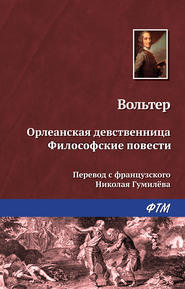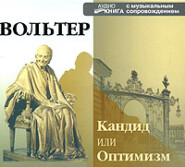По всем вопросам обращайтесь на: info@litportal.ru
(©) 2003-2024.
✖
A Philosophical Dictionary, Volume 09
Настройки чтения
Размер шрифта
Высота строк
Поля
In the second century devils began to be cast out in the name of Jesus; before they were cast out in the name of Jehovah or Ihaho; for St. Matthew relates that the enemies of Jesus having said that He cast out devils in the name of the prince of devils, He answered, "If I cast out devils by Beelzebub, by whom do your sons cast them out?"
It is not known at what time the Jews recognized Beelzebub, who was a strange god, as the prince of devils; but it is known, for Josephus tells us, that there were at Jerusalem exorcists appointed to cast out devils from the bodies of the possessed; that is, of such as were attacked by singular maladies, which were then in a great part of the world attributed to the malific genii.
These demons were then cast out by the true pronunciation of Jehovah, which is now lost, and by other ceremonies now forgotten.
This exorcism by Jehovah or by the other names of God, was still in use in the first ages of the church. Origen, disputing against Celsus, says to him: "If, when invoking God, or swearing by Him, you call Him 'the God of Abraham, Isaac, and Jacob,' you will by those words do things, the nature and force of which are such that the evil spirits submit to those who pronounce them; but if you call him by another name, as 'God of the roaring sea,' etc., no effect will be produced. The name of 'Israel,' rendered in Greek, will work nothing; but pronounce it in Hebrew with the other words required, and you will effect the conjuration."
The same Origen has these remarkable words: "There are names which are powerful from their own nature. Such are those used by the sages of Egypt, the Magi of Persia, and the Brahmins of India. What is called 'magic,' is not a vain and chimerical art, as the Stoics and Epicureans pretend. The names 'Sabaoth' and 'Adonai' were not made for created beings, but belong to a mysterious theology which has reference to the Creator; hence the virtue of these names when they are arranged and pronounced according to rule."
Origen, when speaking thus, is not giving his private opinion; he is but repeating the universal opinion.
All the religions then known admitted a sort of magic, which was distinguished into celestial magic, and infernal magic, necromancy and theurgy – all was prodigy, divination, oracle. The Persians did not deny the miracles of the Egyptians, nor the Egyptians those of the Persians. God permitted the primitive Christians to be persuaded of the truth of the oracles attributed to the Sibyls, and left them a few other unimportant errors, which were no essential detriment to their religion. Another very remarkable thing is, that the Christians of the primitive ages held temples, altars, and images in abhorrence. Origen acknowledges this (No. 347). Everything was afterwards changed, with the discipline, when the Church assumed a permanent form.
FOURTH QUESTION
When once a religion is established in a state, the tribunals are all employed in perverting the continuance or renewal of most of the things that were done in that religion before it was publicly received. The founders used to assemble in private, in spite of magistrates; but now no assemblies are permitted but public ones under the eyes of the law, and all concealed associations are forbidden. The maxim formerly was, that "it is better to obey God than man"; the opposite maxim is now adopted, that "to follow the laws of the state is to obey God." Nothing was heard of but obsessions and possessions; the devil was then let loose upon the world, but now the devil stays at home. Prodigies and predictions were necessary; now they are no longer admitted: a man who in the places should foretell calamities, would be sent to a madhouse. The founders secretly received the money of the faithful; but now, a man who should gather money for his own disposal, without being authorized by the law, would be brought before a court of justice to answer for so doing. Thus the scaffoldings that have served to build the edifice are no longer made use of.
FIFTH QUESTION
After our own holy religion, which indubitably is the only good one, what religion would be the least objectionable?
Would it not be that which should be the simplest; that which should teach much morality and very few dogmas; that which should tend to make men just, without making them absurd; that which should not ordain the belief of things impossible, contradictory, injurious to the Divinity, and pernicious to mankind; nor dare to threaten with eternal pains whosoever should possess common sense? Would it not be that which should not uphold its belief by the hand of the executioner, nor inundate the earth with blood to support unintelligible sophisms; that in which an ambiguous expression, a play upon words, and two or three supported charters, should not suffice to make a sovereign and a god of a priest who is often incestuous, a murderer, and a poisoner; which should not make kings subject to this priest; that which should teach only the adoration of one God, justice, tolerance, and humanity.
SIXTH QUESTION
It has been said, that the religion of the Gentiles was absurd in many points, contradictory, and pernicious; but have there not been imputed to it more harm than it ever did, and more absurdities than it ever preached?
Show me in all antiquity a temple dedicated to Leda lying with a swan, or Europa with a bull. Was there ever a sermon preached at Athens or at Rome, to persuade the young women to cohabit with their poultry? Are the fables collected and adorned by Ovid religious? Are they not like our Golden Legend, our Flower of the Saints? If some Brahmin or dervish were to come and object to our story of St. Mary the Egyptian, who not having wherewith to pay the sailors who conveyed her to Egypt, gave to each of them instead of money what are called "favors," we should say to the Brahmin: Reverend father, you are mistaken; our religion is not the Golden Legend.
We reproach the ancients with their oracles, and prodigies; if they could return to this world, and the miracles of our Lady of Loretto and our Lady of Ephesus could be counted, in whose favor would be the balance?
Human sacrifices were established among almost every people, but very rarely put in practice. Among the Jews, only Jephthah's daughter and King Agag were immolated; for Isaac and Jonathan were not. Among the Greeks, the story of "Iphigenia" is not well authenticated; and human sacrifices were very rare among the ancient Romans. In short, the religion of the Pagans caused very little blood to be shed, while ours has deluged the earth. Ours is doubtless the only good, the only true one; but we have done so much harm by its means that when we speak of others we should be modest.
SEVENTH QUESTION
If a man would persuade foreigners, or his own countrymen, of the truth of his religion, should he not go about it with the most insinuating mildness and the most engaging moderation? If he begins with telling them that what he announces is demonstrated, he will find a multitude of persons incredulous; if he ventures to tell them that they reject his doctrine only inasmuch as it condemns their passions; that their hearts have corrupted their minds; that their reasoning is only false and proud, he disgusts them; he incenses them against himself; he himself ruins what he would fain establish.
If the religion he announces be true, will violence and insolence render it more so? Do you put yourself in a rage, when you say that it is necessary to be mild, patient, beneficent, just, and to fulfil all the duties of society? No; because everyone is of your own opinion. Why, then, do you abuse your brother when preaching to him a mysterious system of metaphysics? Because his opinion irritates your self-love. You are so proud as to require your brother to submit his intelligence to yours; humbled pride produces the wrath; it has no other source. A man who has received twenty wounds in a battle does not fly into a passion; but a divine, wounded by the refusal of your assent, at once becomes furious and implacable.
EIGHTH QUESTION
Must we not carefully distinguish the religion of the state from theological religion? The religion of the state requires that the imans keep registers of the circumcised, the vicars or pastors registers of the baptized; that there be mosques, churches, temples, days consecrated to rest and worship, rites established by law; that the ministers of those rites enjoy consideration without power; that they teach good morals to the people, and that the ministers of the law watch over the morals of the ministers of the temples. This religion of the state cannot at any time cause any disturbance.
It is otherwise with theological religion: this is the source of all imaginable follies and disturbances; it is the parent of fanaticism and civil discord; it is the enemy of mankind. A bonze asserts that Fo is a God, – that he was foretold by fakirs, that he was born of a white elephant, and that every bonze can by certain grimaces make a Fo. A talapoin says, that Fo was a holy man, whose doctrine the bonzes have corrupted, and that Sammonocodom is the true God. After a thousand arguments and contradictions, the two factions agree to refer the question to the dalai-lama, who resides three hundred leagues off, and who is not only immortal, but also infallible. The two factions send to him a solemn deputation; and the dalai-lama begins, according to his divine custom, by distributing among them the contents of his close-stool.
The two rival sects at first receive them with equal reverence; have them dried in the sun, and encase them in little chaplets which they kiss devoutly; but no sooner have the dalai-lama and his council pronounced in the name of Fo, than the condemned party throw their chaplets in the vice-god's face, and would fain give him a sound thrashing. The other party defend their lama, from whom they have received good lands; both fight a long time; and when at last they are tired of mutual extermination, assassination, and poisoning, they grossly abuse each other, while the dalai-lama laughs, and still distributes his excrement to whosoever is desirous of receiving the good father lama's precious favors.
RHYME
Rhyme was probably invented to assist the memory, and to regulate at the same time the song and the dance. The return of the same sounds served to bring easily and readily to the recollection the intermediate words between the two rhymes. Those rhymes were a guide at once to the singer and the dancer; they indicated the measure. Accordingly, in every country, verse was the language of the gods.
We may therefore class it among the list of probable, that is, of uncertain, opinions, that rhyme was at first a religious appendage or ceremony; for after all, it is possible that verses and songs might be addressed by a man to his mistress before they were addressed by him to his deities; and highly impassioned lovers indeed will say that the cases are precisely the same.
A rabbi who gave a general view of the Hebrew language, which I never was able to learn, once recited to me a number of rhymed psalms, which he said we had most wretchedly translated. I remember two verses, which are as follows:
Hibbitu clare vena haru
Ulph nehem al jeck pharu.
"They looked upon him and were lightened, and their faces were not ashamed."
No rhyme can be richer than that of those two verses; and this being admitted, I reason in the following manner:
The Jews, who spoke a jargon half Phœnician and half Syriac, rhymed; therefore the great and powerful nations, under whom they were in slavery, rhymed also. We cannot help believing, that the Jews – who, as we have frequently observed, adopted almost everything from their neighbors – adopted from them also rhyme.
All the Orientals rhyme; they are steady and constant in their usages. They dress now as they have dressed for the long series of five or six thousand years. We may, therefore, well believe that they have rhymed for a period of equal duration.
Some of the learned contend that the Greeks began with rhyming, whether in honor of their gods, their heroes, or their mistresses; but, that afterwards becoming more sensible of the harmony of their language, having acquired a more accurate knowledge of prosody, and refined upon melody, they made those requisite verses without rhyme which have been transmitted down to us, and which the Latins imitated and very often surpassed.
As for us, the miserable descendants of Goths, Vandals, Gauls, Franks, and Burgundians – barbarians who are incapable of attaining either the Greek or Latin melody – we are compelled to rhyme. Blank verse, among all modern nations, is nothing but prose without any measure; it is distinguished from ordinary prose only by a certain number of equal and monotonous syllables, which it has been agreed to denominate "verse."
We have remarked elsewhere that those who have written in blank verse have done so only because they were incapable of rhyming. Blank verse originated in an incapacity to overcome difficulty, and in a desire to come to an end sooner.
We have remarked that Ariosto has made a series of forty-eight thousand rhymes without producing either disgust or weariness in a single reader. We have observed how French poetry, in rhyme, sweeps all obstacles before it, and that pleasure arose even from the very obstacles themselves. We have been always convinced that rhyme was necessary for the ears, not for the eyes; and we have explained our opinions, if not with judgment and success, at least without dictation and arrogance.
But we acknowledge that on the receipt at Mount Krapak of the late dreadful literary intelligence from Paris, our former moderation completely abandons us. We understand that there exists a rising sect of barbarians, whose doctrine is that no tragedy should henceforward be ever written but in prose. This last blow alone was wanting, in addition to all our previous afflictions. It is the abomination of desolation in the temple of the muses. We can very easily conceive that, after Corneille had turned into verse the "Imitation of Jesus Christ," some sarcastic wag might menace the public with the acting of a tragedy in prose, by Floridor and Mondori; but this project having been seriously executed by the abbé d'Aubignac, we well know with what success it was attended. We well know the ridicule and disgrace that were attached to the prose "Œdipus" of De la Motte Houdart, which were nearly as great as those which were incurred by his "Œdipus" in verse. What miserable Visigoth can dare, after "Cinna" and "Andromache," to banish verse from the theatre? After the grand and brilliant age of our literature, can we be really sunk into such degradation and opprobrium! Contemptible barbarians! Go, then, and see this your prose tragedy performed by actors in their riding-coats at Vauxhall, and afterwards go and feast upon shoulder of mutton and strong beer.
What would Racine and Boileau have said had this terrible intelligence been announced to them? "Bon Dieu"! Good God! from what a height have we fallen, and into what a slough are we plunged!
It is certain that rhyme gives a most overwhelming and oppressive influence to verses possessing mere mediocrity of merit. The poet in this case is just like a bad machinist, who cannot prevent the harsh and grating sounds of his wires and pulleys from annoying the ear. His readers experience the same fatigue that he underwent while forming his own rhymes; his verses are nothing but an empty jingling of wearisome syllables. But if he is happy in his thoughts and happy also in his rhyme, he then experiences and imparts a pleasure truly exquisite – a pleasure that can be fully enjoyed only by minds endowed with sensibility, and by ears attuned to harmony.
RESURRECTION
SECTION I
We are told that the Egyptians built their pyramids for no other purpose than to make tombs of them, and that their bodies, embalmed within and without, waited there for their souls to come and reanimate them at the end of a thousand years. But if these bodies were to come to life again, why did the embalmers begin the operation by piercing the skull with a gimlet, and drawing out the brain? The idea of coming to life again without brains would make one suspect that – if the expression may be used – the Egyptians had not many while alive; but let us bear in mind that most of the ancients believed the soul to be in the breast. And why should the soul be in the breast rather than elsewhere? Because, when our feelings are at all violent, we do in reality feel, about the region of the heart, a dilatation or compression, which caused it to be thought that the soul was lodged there. This soul was something aerial; it was a slight figure that went about at random until it found its body again.
The belief in resurrection is much more ancient than historical times. Athalides, son of Mercury, could die and come to life again at will; Æsculapius restored Hippolytus to life, and Hercules, Alceste. Pelops, after being cut in pieces by his father, was resuscitated by the gods. Plato relates that Heres came to life again for fifteen days only.
Among the Jews, the Pharisees did not adopt the dogma of the resurrection until long after Plato's time.
In the Acts of the Apostles there is a very singular fact, and one well worthy of attention. St. James and several of his companions advise St. Paul to go into the temple of Jerusalem, and, Christian as he was, to observe all the ceremonies of the Old Law, in order – say they – "that all may know that those things whereof they were informed concerning thee are nothing, but that thou thyself also walkest orderly and keepest the law." This is clearly saying: "Go and lie; go and perjure yourself; go and publicly deny the religion which you teach."
St. Paul then went seven days into the temple; but on the seventh he was discovered. He was accused of having come into it with strangers, and of having profaned it. Let us see how he extricated himself.
But when Paul perceived that the one part were Sadducees and the other Pharisees, he cried out in the council – "Men and brethren, I am a Pharisee, the son of a Pharisee; of the hope and resurrection of the dead I am called in question." The resurrection of the dead formed no part of the question; Paul said this only to incense the Pharisees and Sadducees against each other.
"And when he had so said there arose a dissension between the Pharisees and the Sadducees; and the multitude was divided.















